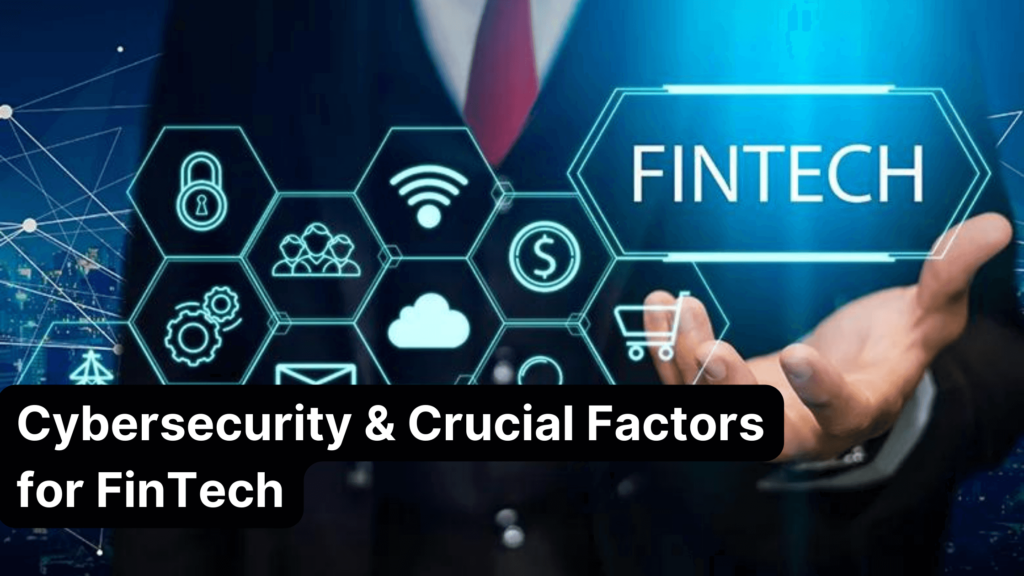Secure digital finance solutions are fundamental to any scalable idea, irrespective of the type of FinTech product or business. FinTechs deal with people’s money and their most sensitive data, so it’s easy to see why Cybersecurity in FinTech should be given prominence.
Cybercriminals who prefer quick and easy money are drawn to this industry because it handles sensitive data belonging to both individuals and businesses. The consequences of even a single hack or data leak may be fatal for businesses, not to mention the customer’s inconvenience. Therefore, it is important for firms to be aware of the importance of advancements in Cybersecurity in FinTech.
What is Cybersecurity in FinTech?
The Cybersecurity for FinTech is a collective term for the safeguards used to protect online financial services and transactions against cyberattacks. Online banking, peer-to-peer payments, digital contracts, cryptocurrencies, financial apps, and more are included in the scope of this safety net.
Confidentiality, integrity, and availability are the three pillars that support fintech cybersecurity. Maintaining confidentiality helps keep private information safe from unwanted users or systems. This is when encryption techniques come into play.
Integrity guarantees that financial data is not changed while being sent or stored unless authorized modifications are carried out by designated system users. The availability provides authorized entities with continuous access to relevant financial resources and information.
Why Cybersecurity in FinTech is Important?
The success of fintech companies is heavily dependent on Cybersecurity. Here are the reasons why Cybersecurity in FinTech is important:
Storage of Critical Information
Cybercriminals find fintech companies appealing because they gather a variety of data kinds. These include transactional data, financial and personal information including purchase histories, behavioral patterns and more. Because of its sensitivity, strong Cybersecurity for FinTech are necessary.
Cost of Breach
Fintech companies bear a heavy financial and non-financial cost from data breaches. A business may have to deal with costly recovery costs, fines from the law for noncompliance, customer attrition driven by negative outlook.
Quick Progress in Technology
The finance industry evolves quickly, therefore being upgraded about new developments in technology are necessary. To counter new vulnerabilities and sophisticated attacks that are introduced into the market, cybersecurity measures must adapt quickly.
To Meet the Comply
To safeguard customer data and avoid cyberattacks, specific cybersecurity compliances are mandated by every country or region. Complying with these regulations is essential for a fintech business to maintain operations and safeguard against various online risks.
Best Practices for Fintech Cyber Security
While it is impossible to totally prevent cyberattacks, fintech businesses can significantly lower their risks by putting in place excellent Cybersecurity for FinTech best practices, including:
Encryption
Encryption is an essential cybersecurity practice for protecting sensitive financial data. Fintech businesses use encryption to secure data while it’s in both transit and at rest.
Many-Factor Authentication
Businesses need to make sure the app has two-factor authentication, which requires the user to input an ID, email address, phone number, Touch ID, or Face ID in order to log in.
Functions and Permissions
Many features are available in fintech apps, but for security reasons, access to them is limited to specific user profiles. Role-based access control, or RBAC, is a method for arranging permissions and defining roles. Another model that enumerates all the actions a specific person is authorized to execute is the ACL (Access Control List).
Collaboration
Fintech companies collaborate with governmental entities and financial institutions to minimize cybersecurity issues and exchange information. This technique helps identify cybersecurity problems early on and develop effective countermeasures.
Top Fintech Security Technologies
To guarantee impenetrable Cybersecurity for their products, fintech service providers are aggressively incorporating the latest security technology. Here are some of the important technologies used in Cybersecurity in FinTech:
Secure Access Service Edge (SASE)
Secure Access Service Edge is a unified cloud service. SASE provides increased security, bandwidth allocation, easier implementation, and other advantages.
Artificial Intelligence
AI systems may keep an eye on databases of network traffic and help spot threats like invasions and malicious data streams.
Blockchain Technology
One of the latest and most popular financial security developments is blockchain technology. Every modification to the data is transmitted through each node and is encrypted. This protects the network from hacker-caused data breaches and other suspicious activity because it would be nearly hard to attack every node.
Technological Regulation
RegTech, or regulatory technologies, is the use of contemporary technology to help companies with fintech regulatory compliance. To maintain the compliance of Cybersecurity in FinTech, this technology assists business in understanding regulatory requirements and content monitoring.
Fintech Regulations and Policies
To ensure Cybersecurity in FinTech, companies have to abide by rules and regulations. Some important rules include:
GDPR
It is a collective law that prevents FinTech and other online issues in the European Union.
PSD2
Payment Services Directive 2 (PSD2) law implies electronic banking and payment services operations in the EU.
eIDAS
The Electronic Identification and Trust Services Directive aims to create a legal framework for safe transactions between governmental authorities, FinTech organizations, corporations, and end users.
FCA
The Financial Conduct Authority (FCA) looks after financial services and FinTech in the United Kingdom.
APPI
The Act on the Protection of Personal Information (APPI) applies to FinTech companies in Japan.
PIPA
The Personal Information Protection Act governs private data security procedures in South Korea.
ISO/IEC 27001
It is a collection of FinTech information security standards, and it includes rules and procedures to assist organizations all over the world.
Conclusion
An increasing number of people are worried about the security of the fintech business. Every year, fraud and breaches of security cost modern fintech companies millions of dollars in losses. Therefore, the best option is to invest in Cybersecurity in FinTech. Although they can’t completely eliminate every danger of cyberspace, modern tools help to reduce them.
FAQs
What is the role of Cybersecurity in fintech?
The important role of Cybersecurity in FinTech is to protect prevent fraud, customer data and maintain trust in the financial services provided.
What are the concerns of fintech cybersecurity?
The concerns of Cybersecurity include Data breaches, Malware, Ransomware, Insider threats, Data leakage, Identity theft, Phishing attacks, Mobile security risks, Third-party risks, and API vulnerabilities.
What is cyber security in the finance industry?
Cybersecurity in the FinTech industry is the use of techniques and tools to protect the digital infrastructure and data from any cyber-attacks and losses.

